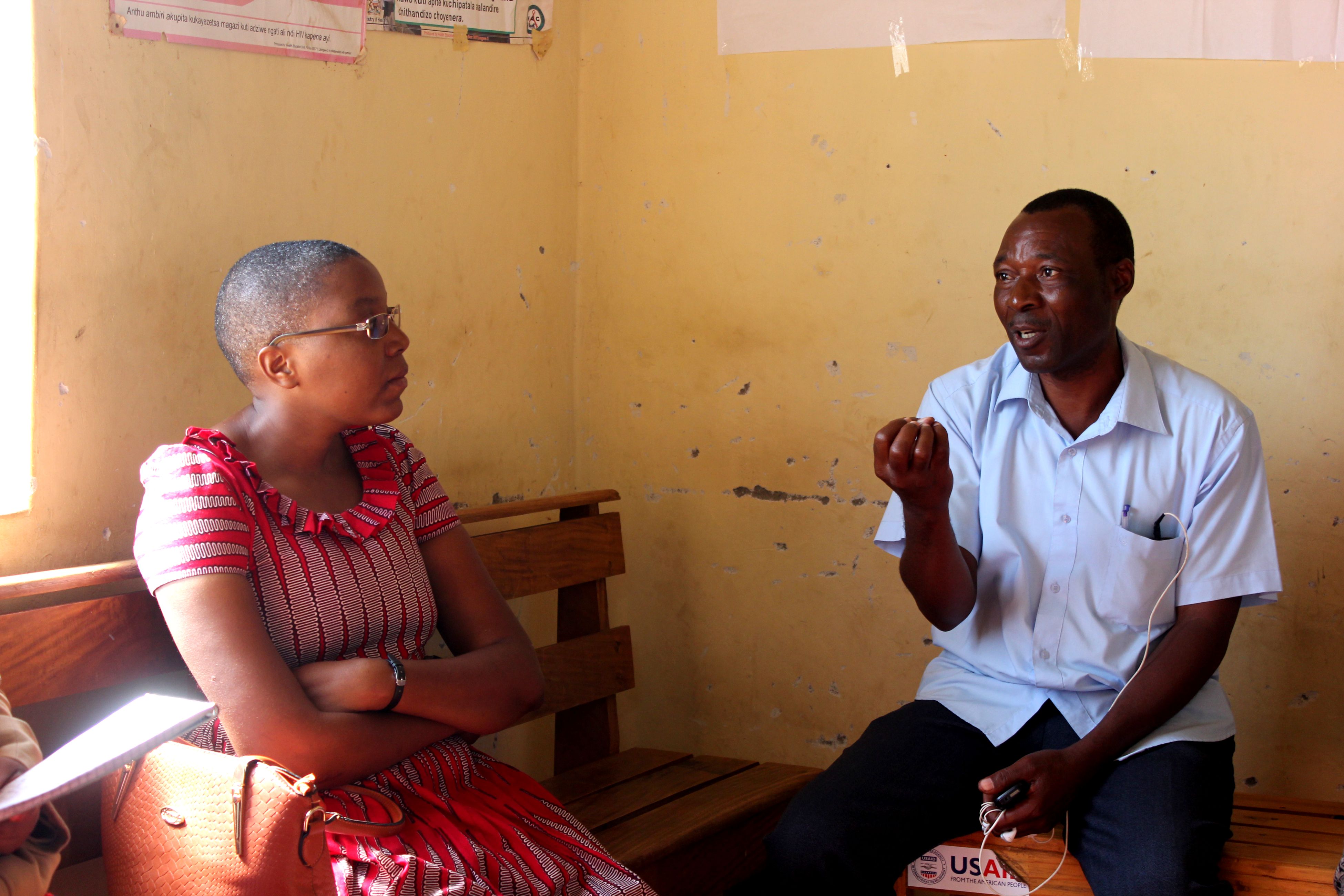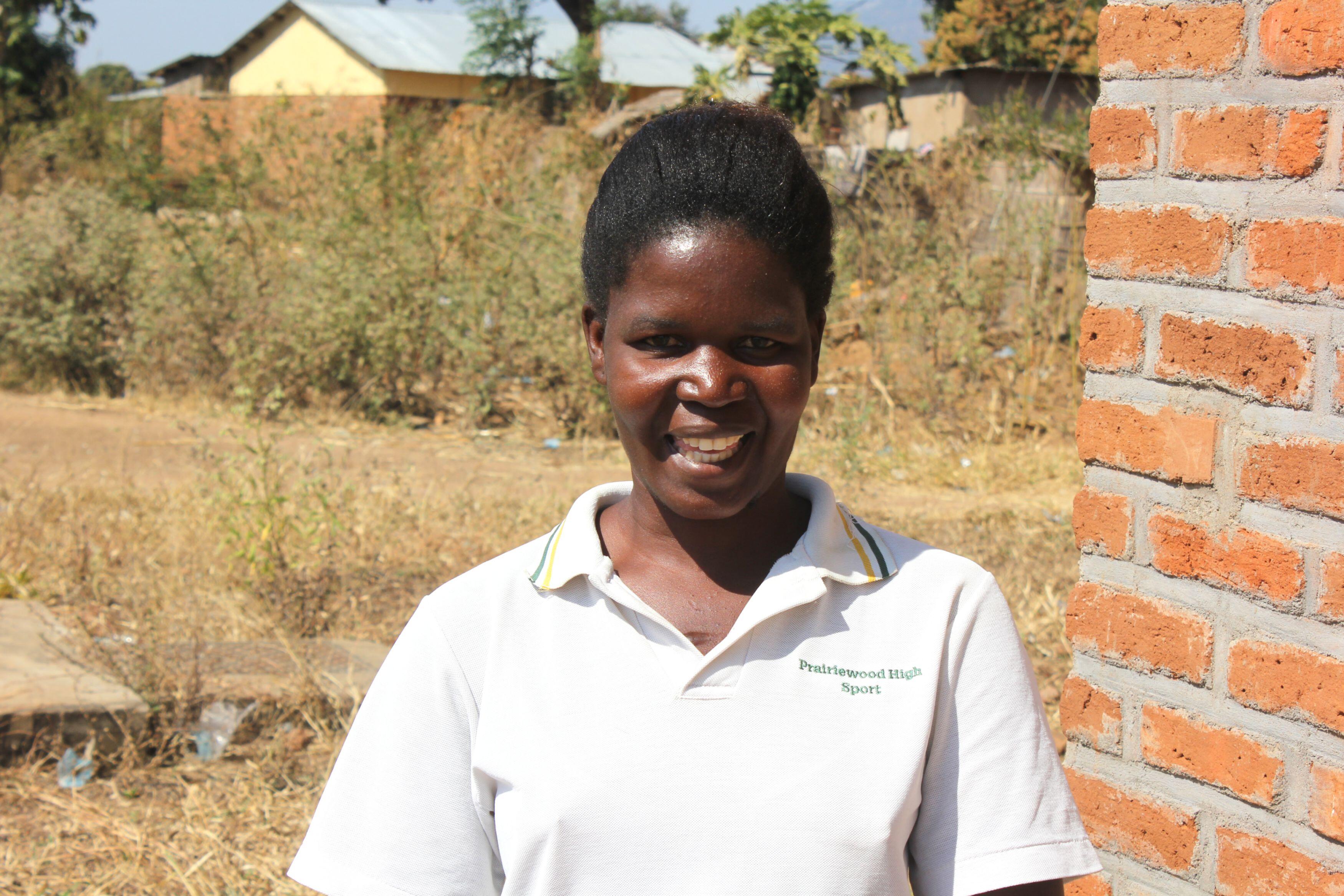At 32 years and working as a ground labour at Mlomba health centre, she has a vision of becoming a nurse. She claims to be in good health and has adequate time to take care of her two children. Triphonia Putheke comes from Saidi Village, Traditional authority Nsamala in Machinga district.
She looks heathy and strong. Thanks to her decision to use family planning methods procured by UNFPA. After she gave birth to her first born son seven years ago, she decided to start using family planning method. Depo provera was her first choice and she has not been proved wrong since.
When she and her husband decided to have another child, she stopped using the contraceptive and gave birth to another male child who is five years now. After the second born child, she reverted back to depo until today.
“I have not experienced any problems with Depo and it has proved to be effective to me as I am able to make the decision on when to have a child; I also have time to take care of the children. I am studying too to achieve my vision of becoming a nurse” she explains
Decision to use contraceptives
Her decision to start using family planning did not just start and continue as easy as she explains. At first, she did not tell her husband about it for one year.
“I did not tell my husband my decision to use family planning because I did know how he will react to that decision; I therefore, did not tell him for a year”.
However, to her surprise, when she told her husband a year later, he gladly accepted it and encouraged her to go ahead to use a family planning method of her choice. “It was very surprising for me and felt bad for not telling him all along” she explains.
Christopher Dinesi, a Health Surveillance Assistant at Mlomba health centre in Machinga confirms the fear that Triphonia as not startling. He explained that it is very common for women to hide the family planning method for fear of reprisals from the husband. “At many times, we keep their health passports here at the facility and they only go home with a notification card with details of the day they should come back for review” he explains.
Community education
“Much as we do the outreach education sessions in the community on the benefits of family planning, men are rarely reached and they end up discouraging their wives from using contraceptives” he further explains.
He explains that he encourages other users as demonstration of success to dispel the negative rumours associated with contraceptives in this community.

Shift to long acting reversible contraceptives
Chifundo Mwehiwa, a community midwife and also a provider of family planning at Mlomba health centre explains that she has seen a shift in the use of short term to long acting reversible contraceptives compared to previous years.
“Most women want to rest for a longer period before they give birth to another child, as such, they opt for either jadelle (5 years) or implanon (3 years)” she explains.
From January to June 2017, the facility has provided LARC to about 463 women.
The facility has also a designated day, Saturday, for young people to access SRH services and has seen more clients that are below 24 years accessing the services.
The Machinga District Health Office family planning coordinator, Elizabeth Katunga concurs with Chifundo as she has observed that overall, the district has recorded an increase in the number of women seeking long acting reversible contraceptives. On their part as providers, LARCs are easy to manage, lessens workload and also has very few side effects.
However, some women like Triphonia have continued with Depo because they do not experience any side effects.
Machinga has a modern contraceptive prevalence rate of 45.9 against the national rate of 58.
UNFPA Support to FP in Malawi
UNFPAs Family Planning Manager, Ms. Milika Mdala explains that UNFPA's focus as regards family planning in Malawi is in the area of capacity building and procurement of FP commodities.
In 2015, UNFPA with support from DFID spent about USD7,163,412.57 for the procurement of family planning commodities, midwifery kits and maternal health antibiotics and drugs.
In 2016, we spent USD 6,174,168.17 for FP commodities, maternal health drugs and antibiotics and USD 423,000 for capacity building. It is estimated that with such support, more than 1640 maternal deaths were averted and couple years of protection estimated at 1 188 500, she said
The procured FP commodities are handed over to Ministry of Health for distribution to health facilities across the country.


